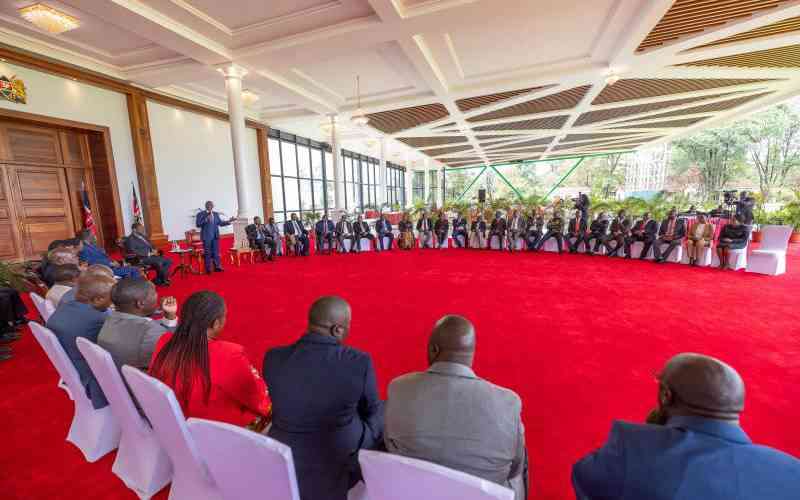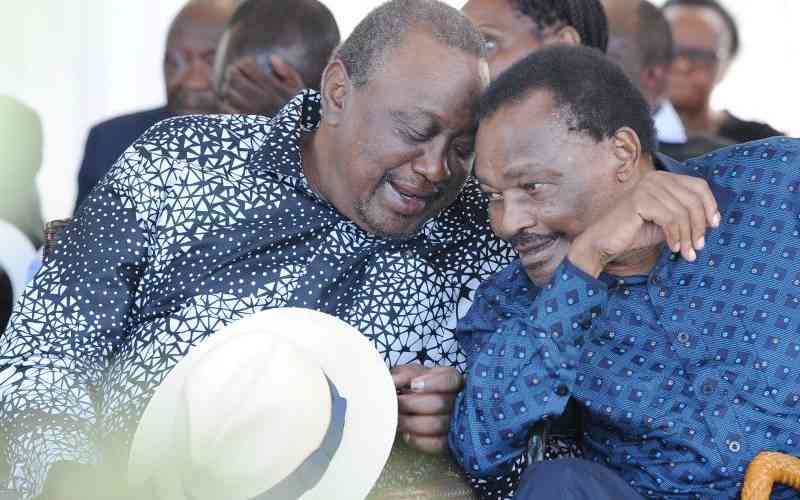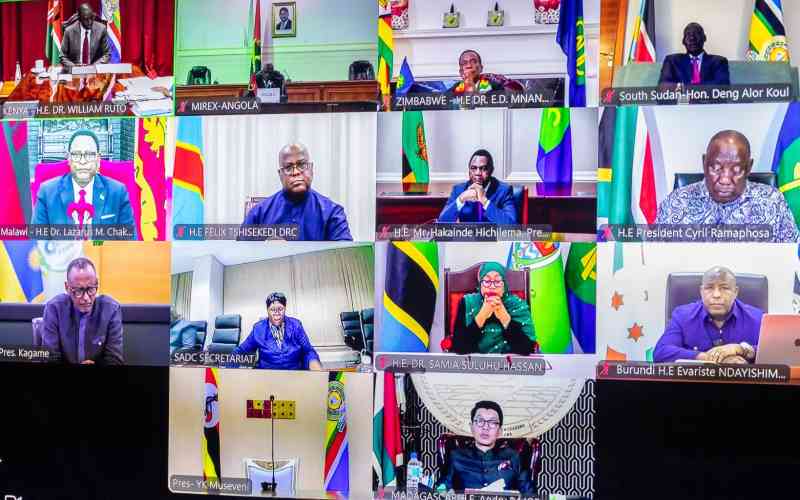By Sospeter Otieno
Diplomacy has always been a game of quid pro quo. And it follows that what you receive is commensurate with what you get.
It is a self evident a priori, that several weeks before the United Nations Security Council voting for a deferral, Kenya’s (UNSC) President Uhuru Kenyatta delivered a speech at the Extraordinary Session of States and Governments of the African Union in Addis Ababa, Ethiopia.
That speech, which would as well have passed as Uhuru’s magnum opus given the level of international scrutiny that it attracted, The President sounded to incite AU countries to turn their backs on the West.
While the intellect and boldness of Uhuru’s thesis as delivered at Addis was the most intense foreign policy speech done by a Kenyan President, the consequences that would follow meant that it was not only ill-advised, but also ill-timed.
He wasn’t going to incite Africa against the West and expect to run away with it.
A Machiavellian Prince walking similar minefield would have waited until the deliberations and voting at UN Security Council had been dispensed with. And if he can’t wait, do it behind closed doors or at worst “wait until he is very sure that the gallows are an a fait accompli and has nothing to lose. That speech collapsed any soft spot the West may have retained for the US-educated son of Kenya’s founding President.
The race card was manifestly evident in the speech that sounded aimed at blackmailing the veto wielders at the UN to acquiesce to Kenya’s bareknuckle diplomacy.
That speech, though a cathartic rightwing masterpiece, lacked humility and created an atmosphere which would have made a Western support for the deferral motion look like a submission to Kenya’s hard tackle diplomacy. Moscow and Beijing would have taken credit for helping Kenya secure a deferral.
It is, therefore, this writer’s opinion that it would have been a better strategy for Uhuru to deliver a triangulated, humble, polite and non-polarising message.
Uhuru’s purely anti-West Ahmadinejaad/Mugabe-like narrative while it earned Kenya’s push for deferral support of Communist leaning UNSC veto wielding nations like Russia and China, alienated Kenya from receiving the support of veto wielding democratic nations like the US, UK and France.
And given the hard time the West encountered dealing with Hugo Chavez, Fidel Castro and Mugabe, the West would endeavor to nip anti-West leaders in the bud at their earliest portrayal of Castro-like tendencies
That is why Uhuru’s speech at Addis only assuaged the souls of Moscow and Beijing but repelled any Western allied nations sympathetic to Kenya’s cause.
The need to end the numerous conflicts in Africa also means that any UNSC member voting with a conscience was cagey about supporting the deferral motion.
The President’s assertion that the ICC is a Western tool intent on intimidating poor African countries, though in sync with his supporters’ long held conviction that ICC is a Western puppet, made him appear like he was aligning himself with the East. That’s not so palatable in The West.
Stay informed. Subscribe to our newsletter
These Western veto wielding nations are also aware of the purveyors of a “distorted political spinning and anti-ICC propaganda” who have frequently insinuated that Western capitals have already submitted a judgment template to be rubber-stamped by the judges. And that this template can be edited in favour of the accused if they were to toe the line of the West.
This argument creates an impression that the ICC cases are just what Uhuru’s speech at Addis called a “farcical pantomime” that is remotely divorced from fighting impunity and ensuring justice for the 1,300 Kenyans who died and thousands internally displaced in the 2008 post-election violence.
The President, when he railed at the West as a bunch of “imperial exploiters” out to “control and exploit us” meant that his speech was a rogue assault on the credibility of the West. And this coming from “he that dwelleth in a glass house”, is what predisposed Kenya to humiliation at the UNSC.
 The Standard Group Plc is a
multi-media organization with investments in media platforms spanning newspaper
print operations, television, radio broadcasting, digital and online services. The
Standard Group is recognized as a leading multi-media house in Kenya with a key
influence in matters of national and international interest.
The Standard Group Plc is a
multi-media organization with investments in media platforms spanning newspaper
print operations, television, radio broadcasting, digital and online services. The
Standard Group is recognized as a leading multi-media house in Kenya with a key
influence in matters of national and international interest.
 The Standard Group Plc is a
multi-media organization with investments in media platforms spanning newspaper
print operations, television, radio broadcasting, digital and online services. The
Standard Group is recognized as a leading multi-media house in Kenya with a key
influence in matters of national and international interest.
The Standard Group Plc is a
multi-media organization with investments in media platforms spanning newspaper
print operations, television, radio broadcasting, digital and online services. The
Standard Group is recognized as a leading multi-media house in Kenya with a key
influence in matters of national and international interest.





